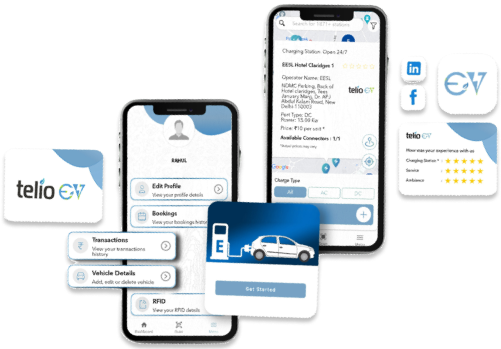Enhancing Electric Vehicle Charging with Advanced Management Software

The fast adoption of electric vehicles (EVs) has required the advancement of effective and easy to use charging solutions. Central to this development are Electric Vehicle Charging Management Software (EV CMS) and EV Charging Apps, which improve the charging process for both operators and users.
Understanding EV Charging Management Software
EV Charging Management Software serves as a comprehensive platform that enables Charge Point Operators (CPOs) and other stakeholders to monitor, manage, and optimize EV charging stations. Key functionalities consist of real-time tracking of charging stations, user authentication, payment processing, and energy management. By incorporating these features, the software ensures effective operation and boosts the user experience.
Key Features of EV Charging Management Software
1. Real-Time Monitoring and Control: Operators can supervise the status of charging stations, track energy consumption, and address issues without delay.
2. User Authentication and Access Control: The software manages user gain access to, guaranteeing that only authorized individuals can utilize the charging centers.
3. Payment Processing: It helps with seamless deals, supporting different payment methods to deal with varied user preferences.
4. Energy Management: By optimizing energy distribution, the software lowers operational costs and supports grid stability.
5. Reporting and Analytics: Comprehensive information analysis aids in informed decision-making and tactical planning for network growth.
The Role of EV Charging Apps
EV Charging Apps are developed to provide EV owners with hassle-free access to charging infrastructure. These applications offer functions such as locating neighboring charging stations, real-time accessibility updates, navigation assistance, and remote tracking of charging sessions. By improving accessibility and user engagement, these apps play an important role in promoting the adoption of electric vehicles.
Combination with Open Charge Point Interface (OCPI)
The Open Charge Point Interface (OCPI) is a OCPI standardized protocol that assists in interoperability between various EV charging networks. Integration with OCPI permits seamless roaming, making it possible for users to access numerous charging networks with a single account. This interoperability improves user benefit and expands the ease of access of charging facilities.
Benefits of Implementing Advanced Charging Solutions
- Enhanced User Experience: User-friendly user interfaces and reputable services increase consumer complete satisfaction and commitment.
- Operational Efficiency: Automation and real-time monitoring minimize manual intervention, lowering operational expenses.
- Scalability: Advanced software solutions support the expansion of charging networks to satisfy growing need.
- Revenue Generation: Flexible prices models and effective payment processing open new revenue streams for operators.
Conclusion
The integration of EV Charging Management Software and user-centric EV Charging Apps is essential in advancing the electric vehicle environment. These technologies not only enhance operations for service providers however also substantially enhance the charging experience for users. As the EV market continues to grow, the adoption of such sophisticated solutions will contribute in meeting the increasing demand for effective and available charging infrastructure.